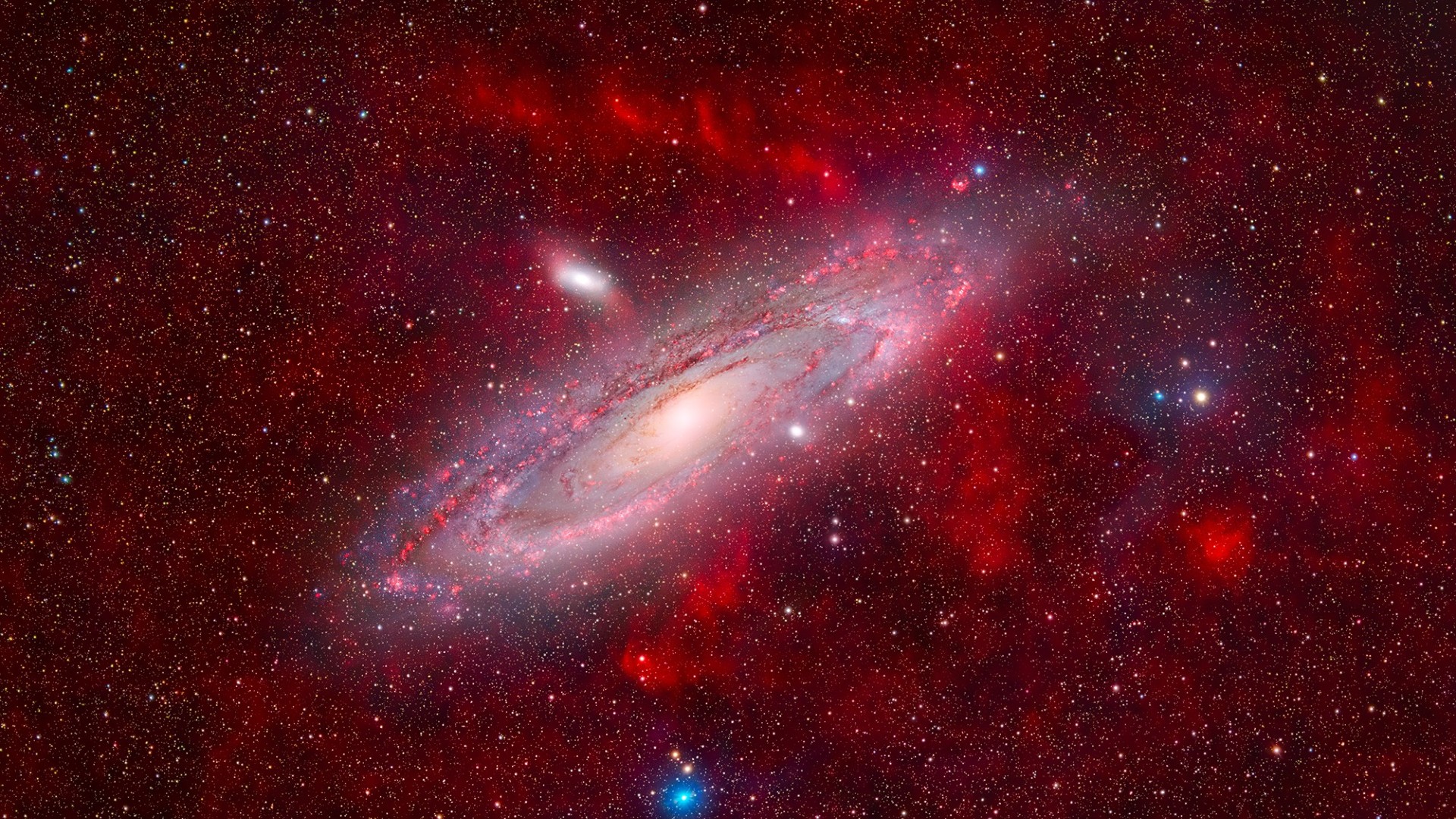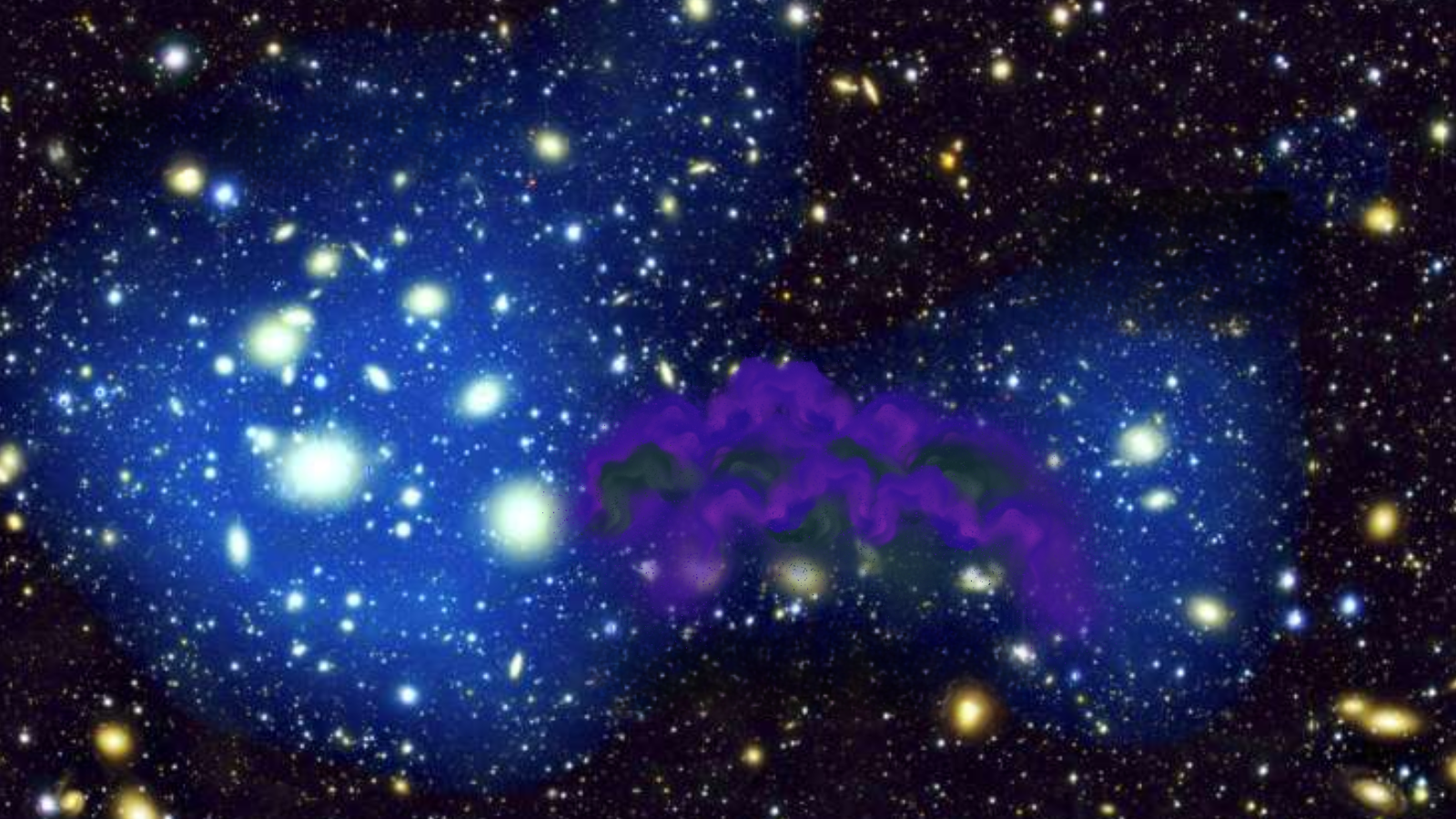Elusive Mercury Joins the Moon in Night Sky Thursday
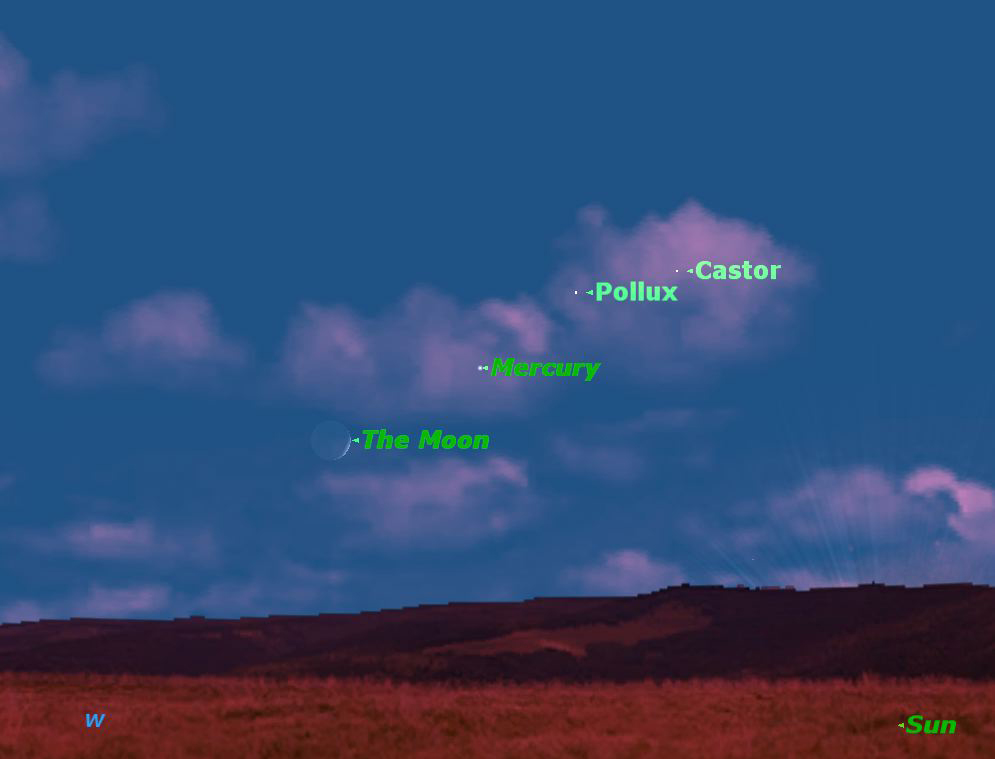
As the moon makes its monthly journey around the Earth, it has regular close encounters with planets and stars along its path. Last week it passed close to Venus and Jupiter at dawn and next week it will pass by Saturn. But this week, it's Mercury's turn.
On Thursday night (June 21) Mercury will be just to the right of a very thin crescent moon for observers in North America. Despite its brightness, Mercury is the least often observed of the classical planets. That's because it never strays very far from the sun, so must be spotted against a bright twilight sky. Having the moon as a pointer is a real boon for finding Mercury. It gives your eyes something to focus on, and narrows down the territory to search.
Even so, binoculars can be a great help in spotting Mercury. Focus on the moon, low on the western horizon, and then sweep up to the right to spot Mercury.
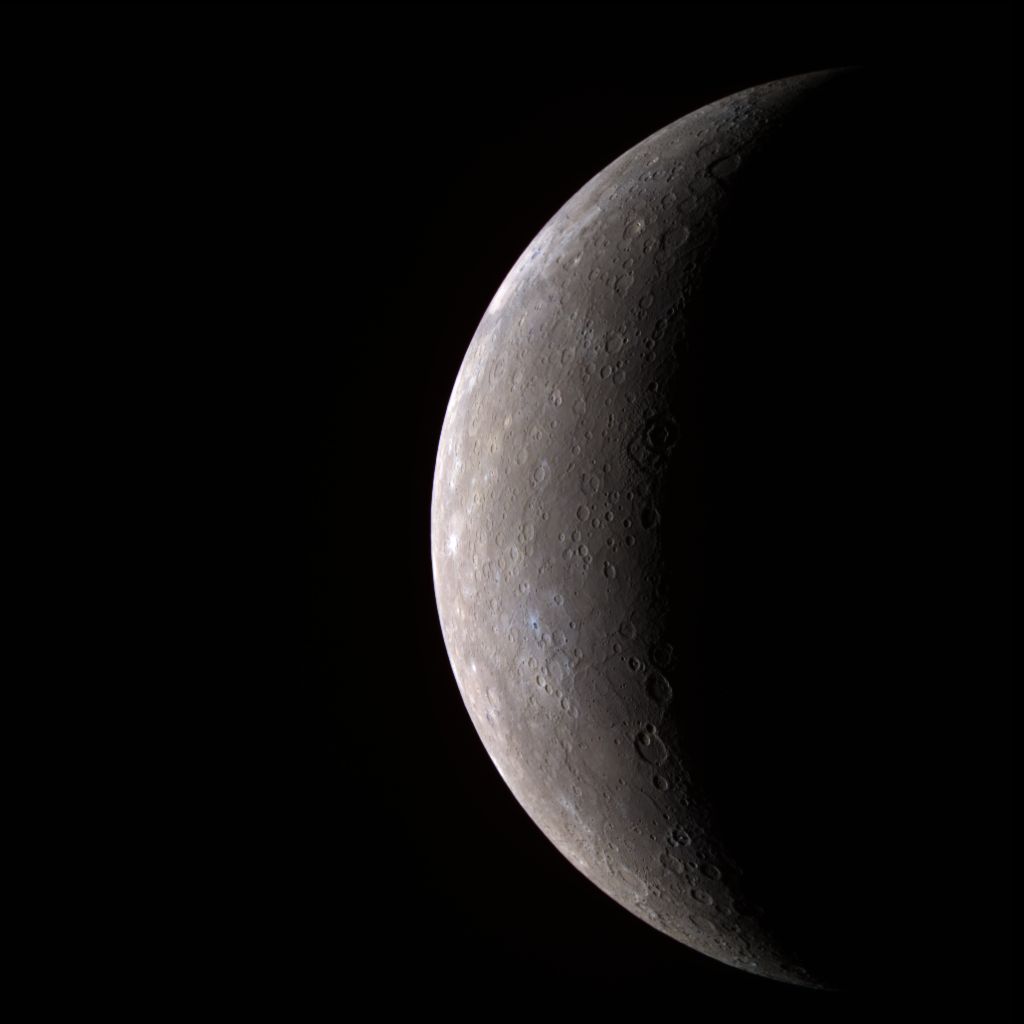
Take a close look at the moon, especially with binoculars or a telescope. To the left of the bright crescent you should see the rest of the moon shining faintly under the sunlight reflected back by the Earth.
While you have your binoculars handy, see if you can spot the twin stars of Gemini, Pollux and Castor, just above and to the right of the Mercury.
Observers in the southern hemisphere will have an easier time of spotting Mercury, because the ecliptic, the path of the sun, moon, and planets, is almost perpendicular to the horizon at this time of year. Look for Mercury just above the moon, and Pollux and Castor above Mercury.
This article was provided to SPACE.com by Starry Night Education, the leader in space science curriculum solutions. Follow Starry Night on Twitter @StarryNightEdu.
Get the Space.com Newsletter
Breaking space news, the latest updates on rocket launches, skywatching events and more!
Join our Space Forums to keep talking space on the latest missions, night sky and more! And if you have a news tip, correction or comment, let us know at: community@space.com.
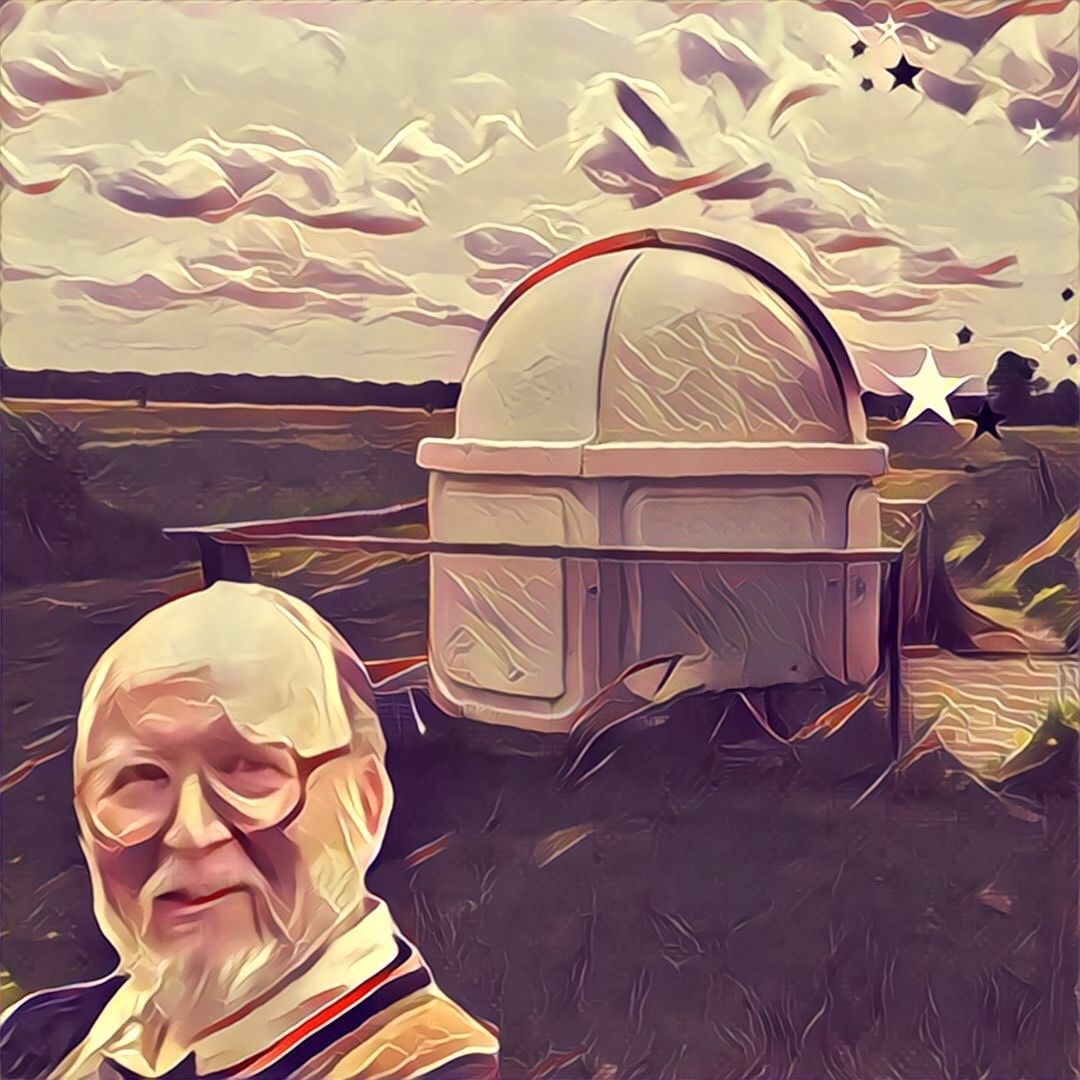
Geoff Gaherty was Space.com's Night Sky columnist and in partnership with Starry Night software and a dedicated amateur astronomer who sought to share the wonders of the night sky with the world. Based in Canada, Geoff studied mathematics and physics at McGill University and earned a Ph.D. in anthropology from the University of Toronto, all while pursuing a passion for the night sky and serving as an astronomy communicator. He credited a partial solar eclipse observed in 1946 (at age 5) and his 1957 sighting of the Comet Arend-Roland as a teenager for sparking his interest in amateur astronomy. In 2008, Geoff won the Chant Medal from the Royal Astronomical Society of Canada, an award given to a Canadian amateur astronomer in recognition of their lifetime achievements. Sadly, Geoff passed away July 7, 2016 due to complications from a kidney transplant, but his legacy continues at Starry Night.






